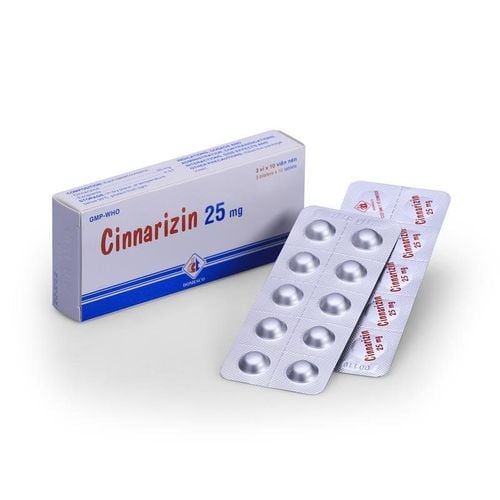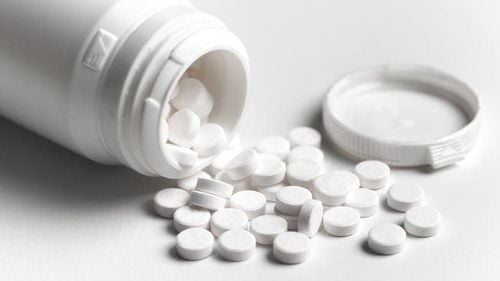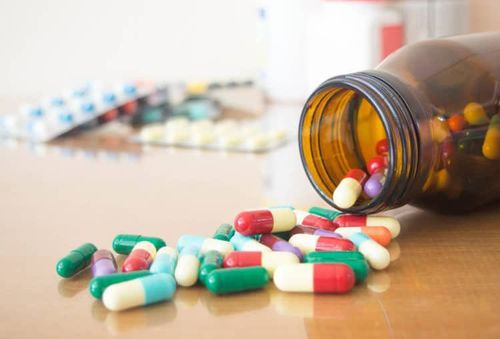This is an automatically translated article.
Intravenous Acetaminophen is indicated for the relief of fever and pain in moderate to severe pain. The drug is often combined with central analgesics in patients with severe pain. Let's learn about the uses and notes when using Acetaminophen intravenously through the article below.1. Indications of intravenous Acetaminophen
Intravenous Acetaminophen is indicated in the following cases:Reduce fever and relieve mild to moderate pain. In combination with central analgesics in cases of moderate to severe pain.
2. Dosage and usage
2.1. Dosage
Dosage of intravenous Acetaminophen is prescribed by the treating doctor. Accordingly, the drug dose should be determined by weight for patients weighing less than 50 kg. The total dose of Acetaminophen from all routes of administration should not exceed the recommended daily dose (Not more than 4g/day in adults weighing more than 50kg, not more than 75mg/kg/day in adults and adolescents weighing less than 50kg). 50kg). Avoid confusing drug doses in milligrams (mg) and milliliters (mL).2.2. Overdose and treatment
An overdose of Acetaminophen intravenous pain reliever can cause a number of symptoms including bleeding gums, bloating in the abdomen or stomach, blood in the urine or stools, chills, difficult or painful urination, discomfort, appearance of red spots on the skin, sudden decrease in urine output, vomiting blood, bad breath,...In case of overdose symptoms, the patient should be Take it to a medical facility as soon as possible for timely treatment
3. Side effects
Intravenous Acetaminophen can cause some side effects as follows:Side effects in adults: Abnormal breathing; swelling of the face, arms, hands, or feet; shortness of breath, dizziness, fainting, lightheadedness when getting up or changing positions; irregular heartbeat; lack of appetite; cramp ; muscle pain; numbness or tingling of the hands or feet; pain at the injection site; fast heart beat; chest tightness; unusual tiredness or weakness. Side effects in children: Shortness of breath, rapid breathing; dizzy ; fast heartbeat or pulse; lower back pain, hip pain; muscle spasms or convulsions; noisy breathing; limb pain; swelling around the eyes; swelling of the feet, ankles, or legs; Side effects of unspecified frequency: Clay-colored stools; stomach or stomach pain; dark urine; difficulty swallowing; not eating well; swelling of the eyelids or the area around the eyes, lips, face, tongue; rash; chest tightness, yellowing of the skin or eyes.
4. Note when using
4.1. General Note
Tell your doctor right away if you experience symptoms such as pain or tenderness in the upper abdomen, pale stools, dark urine, nausea, loss of appetite, unusual tiredness or weakness, yellow eyes or jaundice...Acetaminophen can cause serious allergic reactions, including anaphylaxis. Therefore, patients need to inform their doctor about allergy drugs as well as the risk of allergies to foods, drinks, ...
Acetaminophen has the ability to increase the effect of alcohol and other psychoactive drugs. other central nervous system drugs such as antihistamines, allergy medicines, tranquilizers, central analgesics, muscle relaxants, anesthetics, etc. Besides, the risk of liver damage increases when the patient is ill. use alcoholic beverages while being treated with Acetaminophen.
4.2. Note when using drugs in special subjects
Children: There are currently no studies demonstrating the safety and effectiveness of injectable acetaminophen in children under the age of 12. Elderly: Studies have shown no need for dose adjustment in the elderly. Lactation: Only treat with injectable Acetaminophen in lactating women when absolutely necessary.5. Drug interactions
5.1. Drug-drug interactions
Acetaminophen can interact with the following drugs: Imatinib, Isoniazid, Pixantrone, group 13 - Valent pneumococcal vaccine, diphtheria combination.Concomitant use of Acetaminophen with the following drugs may increase the risk of side effects: Acenocoumarol. Fosphenytoin, Carbamazepine, Lixisenatide, Phenytoin, Warfarin, Zidovudine.
5.2. Drug-food, drink-drug interactions
Do not use alcohol, beer, alcohol and smoking during treatment with Acetaminophen, because they increase the risk of experiencing side effects of the drug.The comorbidities greatly affect the effectiveness of using Acetaminophen, so the patient should notify the treating doctor when suffering from the following comorbidities:
Alcohol abuse or a history of alcohol abuse beer; Severe hypovolemia; Diseases of the kidneys, liver; Malnutrition .
Please dial HOTLINE for more information or register for an appointment HERE. Download MyVinmec app to make appointments faster and to manage your bookings easily.













